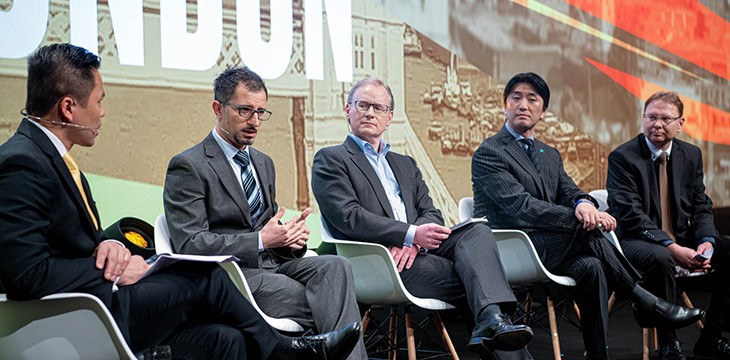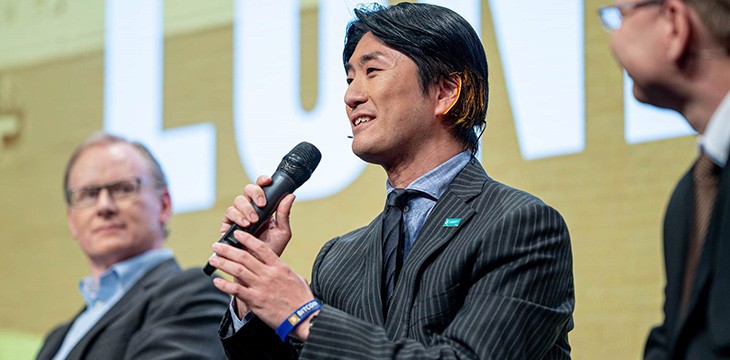|
Getting your Trinity Audio player ready...
|
Bitcoin has been around for over a decade now and the ecosystem is currently being built with regulation and ensuring compliance in the future at the forefront.
A diverse panel of executive leaders from different parts of the financial sectors got together during CoinGeek London Conference to discuss how they believe Bitcoin and regulation work well together.
The panelists included Eli Afram, CTO of Layer2 Technologies; Andrew Baxter, Managing Director (U.K.) of Tokenized; Masumi Hamahira, Executive Advisor for Islamic Banking Window MUFG Bank (Malaysia) and Holger Vogel, Avaloq Developer, Basler Kantonalbank. The panel was moderated by Jimmy Nguyen, Founding President of the Bitcoin Association.

The current financial system is far from perfect. In fact, there are many gaps and bottlenecks with constraints to processes that make doing business more difficult than it should be. Andrew Baxter of Tokenized sees this as a golden opportunity that the industry can capitalise on.
“What is interesting is to look at where the problems exist in the existing financial system, and where we can be most attractive to those existing problems and processes. And we are most attractive when we can solve a speed, cost or credit,” Baxter said.
An example of this is with foreign currency transactions for cross border payments still settle within two days. This timeframe is still based on processes from a few decades ago when there was a lot of manual handling involved and does not reflect the technological capabilities that we can leverage today that will make this instant and provide full transparency.
There are many benefits that the utilisation of BSV can provide in real time for regulators.
“Every participant has been through a KYC (know your customer) check. Every transaction is with known parties which means you can monitor, look for suspicious transactions, determine source of funds and regulator can look at this information in real time,” Baxter said.
Masumi Hamahira gave some interesting insight from the Islamic world where their financial system has to adhere to Sharia law and by doing so adds some additional complexities that is not faced in the western financial world.
An example provided with Islamic banks, is that they cannot sell a commodity before owning it. Therefore, they need to organize and record the sequence of ownership of the commodities which currently is a very manual and convoluted process.
“If we use the Bitcoin SV blockchain, we can enjoy the timestamp ledger function. We cannot change the record, we cannot tell a lie, it is originally recorded, it is very efficient. Blockchain is very good for Islamic finance,” Hamahira said.

Holger Vogel, an Avaloq Developer at a Swiss bank believes that the problems of fragmentation of different systems today in a digital world will only be solved if everything is on the same blockchain.
“When you have lots of different fragmented systems, working like risk systems, issuing systems, trading systems, you have a fragmented world that is already digital, but not on the single blockchain solution. You will improve efficiencies coming by doing it borderless in the same system,” Vogel said.
The Bitcoin SV blockchain is attractive to all governing bodies. The consensus amongst the panelists is they need to continue to work with regulators to guide and educate them on the benefits so that they can move quicker to embrace using Bitcoin SV.
“Everything that is BSV is so suited to business. We want no obscurity with the ledger, we want a clear ledger and BSV is the only one that has that clarity with the ledger,” Eli Afram said, adding, “Bitcoin was designed for business, and it helps regulators, it supports them. This was custom built for regulators. It is more transparent than your bank.”

 02-28-2026
02-28-2026 




